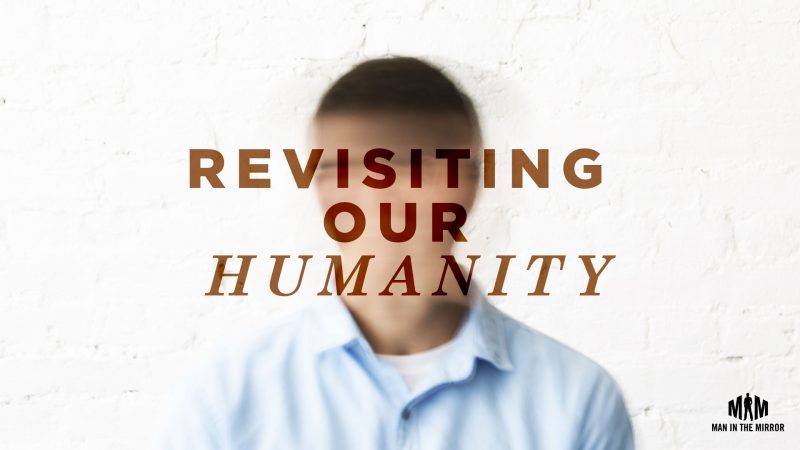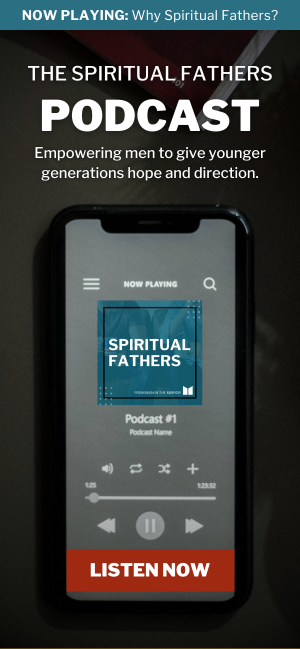Revisiting Our Humanity
By Guest Writer Jeremy Schurke
Director of Mirror Labs
This is the fifth article in our current series on reaching younger men.
Recently, a friend told me his uncle passed away—the first person close to him he’d ever lost. The funeral was held over Zoom. He commented how odd it was to see an open casket of a loved one on his computer. How grievous it was not to hug or be hugged by anyone in his family.
He told me, “It was so weird. Looking at my uncle on the screen, I just kept thinking, Human bodies were made to have life in them.”
I replied, “Yeah, and life is supposed to have human bodies in it, too.”
The Over-Promise of Technology
The one thing that everyone can agree on in 2020 is life as we knew it abruptly changed. Across the board, all of our lives were altered very quickly as our social patterns and life expectations morphed. We became quarantined, isolated, and more dependent on technology than ever before.
When we are forced to make quick decisions in the face of a public health crisis, we often don’t consider the future ramifications. Survivalism doesn’t pair well with contemplation. Although the ability to connect with others, work, and learn through technology solved many of our short-term problems, as the weeks have turned into months, the long-term effects are not yet known.
The new documentary The Social Dilemma on Netflix makes a very compelling case that “technology’s promise to keep us connected has given rise to a host of unintended consequences that are catching up with us.” What are some of those unintended consequences of a greater dependency on tech platforms that make billions of dollars by keeping our attention through clicking, scrolls, and shares? A quick survey of your local community should provide the answer. We, as a society, are increasingly becoming depressed, outraged, polarized, addicted, and isolated.
When we are forced to make quick decisions, we often don’t consider the future ramifications. Survivalism doesn’t pair well with contemplation. Click To TweetFor younger men, this saturation of connection through technology existed prior to the pandemic; many of them have never known a world without it. Now, it is an even greater, ever-present reality as they navigate online school, virtual offices, online dating, and more. As one parent of two college students recently said to me, “How do you meet new people? How do you build lasting friendships/relationships over online classes and virtual work meetings?” This year has only served to turn the existing technological nudge into a tidal wave and we don’t know where it will crash.
As such, I am becoming more and more convinced of the importance of in-person experiences.* In light of the continued push of technology’s war for our attention, our relationships are becoming the casualties.
This year has only served to turn that technological nudge into a tidal wave and we don't know where it will crash.Click To TweetFleshing Out Our Relationships
From an eternal perspective, no one loves relationships more than the triune God. In fact, God created relationships to rest at the root of existence itself. Everything is predicated on whether or not we have a relationship with God. Therefore, a good question to ask might be what is the best way to engage each other in relationship? I would argue that it’s in person.
God became human to be around humans—to communicate with us, embrace us, and look us in the eyes. Jesus laughed with humans. Jesus wept with humans. Jesus experienced all the benefits and trials of being human alongside other humans! Whether it was the crowds, the disciples, or friends’ houses, Jesus sought relationships. Even the transfiguration had other transfigured bodies present.
Think about it: is there anything more profoundly hopeful and powerful to hold onto in 2020 than John’s promise, “He will wipe away every tear from their eyes”? To finally see the face of our Father and feel His loving hands cup our faces as He wipes our tears away? That is the realest, most life-giving experience we could ever hope for. It’s the ultimate in-person relationship.
God became human to be around humans—to communicate with us, embrace us, and look us in the eyes.Click To TweetRecently, I have found myself thinking about the concept of embodiment. What odd and mysterious vessels we are for God to form from the earth and breathe life into! And yet, as theologian Gregg R. Allison stated, “God designed human beings to live fully embodied lives as the proper state of their existence.”
We were fearfully and wonderfully made to be human, and the universal human condition from the moment we exit the womb to the moment we stand before God is a desire for human relationships. It’s one of the things that makes the incarnation of Christ so fascinating.
THE BIG IDEA: To experience the life God intended for us, we must make every effort to experience it embodied together.
In the midst of the technological tidal wave, it would be wise for all of us to step back and consider the core truth that the church is human. We are the body and Christ is the head.
Bodies were made to have life in them, and life is supposed to have human bodies in it, too.
To experience the life God intended for us, we must make every effort to experience it embodied together. Click To Tweet*The critical value of in-person experiences for our lives is in no way meant to discourage anyone from following the current guidelines related to COVID-19 on safe, responsible gathering as a form of loving our neighbors and protecting the vulnerable.
♦♦♦








